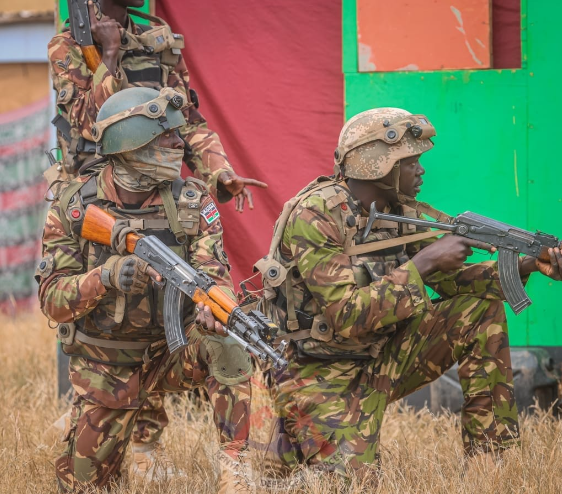The Kenya Defence Forces (KDF) have joined a multi-agency security team to conduct patrols in parts of Tana River County following a spate of interclan violence that has left nine people dead. The recent clashes, which occurred over a disagreement between two communities over control of a watering point, have intensified tension in the region.
According to Inspector General of Police Douglas Kanja, the first fatal attack took place on October 4 in Anole, where five people were killed and two others injured in a shooting. A retaliatory attack in Nanighi Village on the same day resulted in the deaths of four more people. The attackers used crude weapons, and several houses (manyattas) were torched in the aftermath.
In response, security forces, including personnel from the National Police Service (NPS), the KDF, and the Directorate of Criminal Investigations (DCI), have stepped up their presence in the area to restore peace. Kanja assured the public that the situation is under control and called for cooperation from the local communities in maintaining peace and reporting any suspicious activities.
Top security officials from the regional command in Mombasa also visited the area on Monday to assess the situation and prevent further planned attacks. The skirmishes have involved the use of firearms, bows, and arrows, with security officers facing challenges in controlling the warring factions.
Tana River County Commissioner David Kosgei confirmed that specialized units from the Administration Police, along with the KDF, have been deployed to pacify the area. The ongoing conflict has claimed 12 lives in the last two weeks, escalating fears of further violence in the region.
The ongoing conflict in Tana River County has led to the displacement of many locals, with victims seeking shelter in schools and other public amenities in the area. According to police, the violence has been fueled by longstanding land disputes and competition over resources between the farming and pastoralist communities.
The conflict reportedly began when flood victims, primarily farmers displaced by the bursting of River Tana’s banks during the recent long rains, were resettled along the Garissa-Hola road in clusters by the county government. Pastoralists, who traditionally used the land for grazing their animals, rejected the settlement plans, seeing them as a move to grab their ancestral land.
Tensions escalated when the conflict spread to the KBC area, where flood victims had recently settled. Village elder Daud Shora, aged 58, was tragically shot four times and died on the spot, further intensifying the unrest. Locals are now calling for the arrest of individuals in possession of illegal firearms and demanding accountability for those responsible for fueling the violence.
Residents also suspect that some politicians may be covertly inciting the clashes, stoking tensions between communities for political gain. This concern is heightened by previous incidents, such as the killing of three people in an internally displaced persons (IDP) camp last month.
The situation has gained national attention, and on October 8, five political leaders from Tana River County were summoned by the National Cohesion and Integration Commission over accusations of inciting violence between communities in both Tana River and Kitui counties.
The unfolding violence highlights the need for a comprehensive approach to address land disputes, political tensions, and the illegal arms that continue to fuel the conflict.



